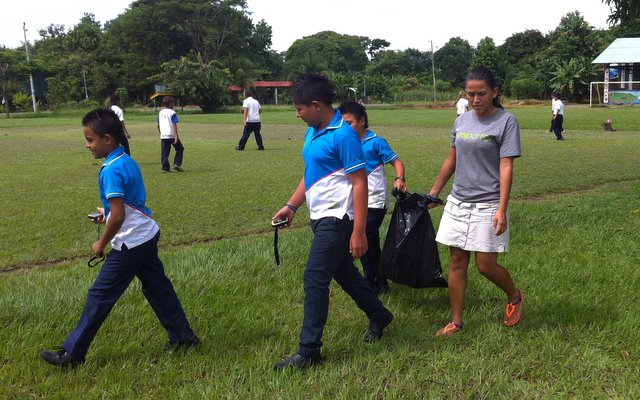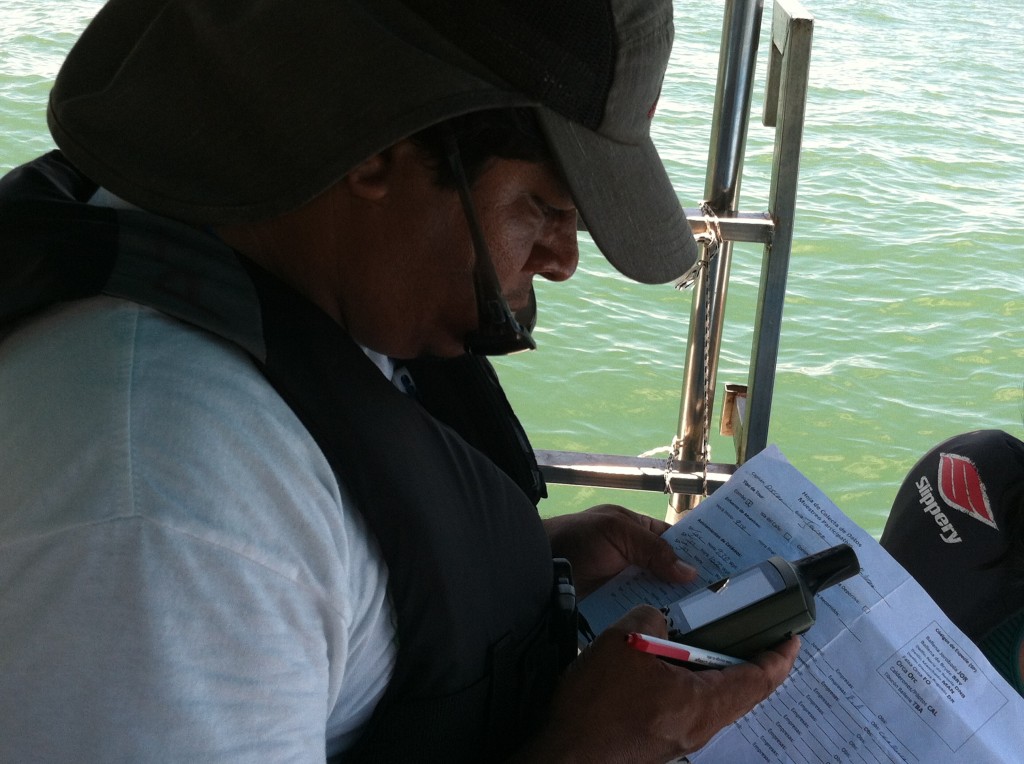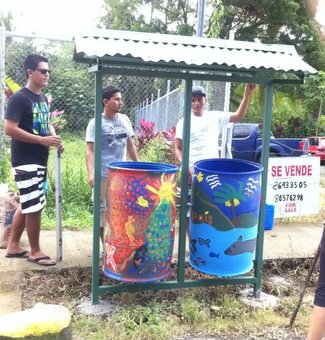Humpback whales from northern and southern migrations in the Pacific Ocean travel every winter to the breeding grounds near the equator. These humpback whales now have a breeding environment off the coast of Costa Rica that is less polluted than it was a year ago, before The Pollination Project seeded Bahia Ballena.
Bahia Ballena is a small coastal community with 3,000+ residents that has transitioned from a rural fishing village to one that brings in more than 20,000 tourists annually to see these magnificent creatures in their natural breeding grounds. Over the past year, residents of Bahia Ballena have been using GPS units and computers with GIS (computer mapping and analysis software), that were purchased with support from The Pollination Project, to improve the environment of their community and the habitat of the whales that call the ocean waters home for about four months every year.
This geospatial travel lab of four GPS units, rechargeable batteries and two computers has enabled Geoporter to train and educate community members to use these technologies to investigate their community. Over five months residents, including youth, categorized and mapped trash along the streets and beaches in town. After the 6 am Friday morning trash classification activities, key residents and leaders gathered to review the trash maps, created by residents, to examine concentrations of trash and identify new locations to place trash and recycling containers. By going door to door, residents collected enough money from ten companies and organizations in town to build and construct eight new trash and recycling centers with roofs to protect from the daily rains.
 Residents know that placing these trash cans is not the final solution to eliminating trash in the streets and beaches and protecting the marine habitat, but rather there needs to be a behavioral shift in the people. With this in mind, residents and the resident Geoporter in town shared the GPS and GIS technologies with students in the local elementary school. Students learned how to use the technologies while also understanding their role in creating and eliminating trash in the streets. Using the trash map created from data collected by the students, the director of the school was recently informed that the school earned its first Blue Flag as part of the Bandera Azul program. Bandera Azul is a national program designed to recognize schools, communities, organizations that develop and implement environmentally friendly practices by balancing conservation, development and protection of natural resources.
Residents know that placing these trash cans is not the final solution to eliminating trash in the streets and beaches and protecting the marine habitat, but rather there needs to be a behavioral shift in the people. With this in mind, residents and the resident Geoporter in town shared the GPS and GIS technologies with students in the local elementary school. Students learned how to use the technologies while also understanding their role in creating and eliminating trash in the streets. Using the trash map created from data collected by the students, the director of the school was recently informed that the school earned its first Blue Flag as part of the Bandera Azul program. Bandera Azul is a national program designed to recognize schools, communities, organizations that develop and implement environmentally friendly practices by balancing conservation, development and protection of natural resources.
With the new trash and recycling centers placed in the ground at the end of October, residents are now preparing for another high season of tourists and mapping the streets and beaches again to see if the new trash centers have made an impact in the amount of debris in the streets. With over 128 cm (50 in) of annual rainfall, it doesn’t take long for the trash in the streets to make the 2 km journey to the ocean and the winter breading grounds of humpback whales in Marino Ballena National Park. But trash isn’t the only thing residents are concerned about.  They also want to know when the whales are arriving, where they can be spotted in the ocean and the departure dates so they can help protect the whales and their habitat. Guides and captains from different Tour Companies are using these technologies to map the daily humpback whale sightings during the different migration seasons which will help them understand the whale patterns today as well to see changes in whale numbers, location, and arrival and departure dates in the future.
They also want to know when the whales are arriving, where they can be spotted in the ocean and the departure dates so they can help protect the whales and their habitat. Guides and captains from different Tour Companies are using these technologies to map the daily humpback whale sightings during the different migration seasons which will help them understand the whale patterns today as well to see changes in whale numbers, location, and arrival and departure dates in the future.
Without the support of The Pollination Project, Geoporter would have been without the geospatial travel lab to take to different locations to train and educate community members to apply the technologies and carry out projects themselves. The application of these technologies has earned national news recognition with two articles being published in La Nación, one of the national newspapers in Costa Rica, about residents using GPS and GIS in to map trash and monitor whales. Residents of Bahia Ballena along with Geoporter are grateful for this support and have had the opportunity to take this travel lab to other nearby communities to share ideas and help support other communities to start learning how to use GPS and GIS. With these seed funds, Geoporter applied for and recently received its 501(c)3 status in the U.S. to continue educating communities around the world to learn to use these technologies for themselves to investigate their community and make the change they wish to see in the world. Thank you for pollinating our project and helping us get started on our dream to change the world through education with GIS and GPS!
We currently have an IndieGoGo Project to help raise funds to continue this project. Won’t you help us continue to make a difference.

